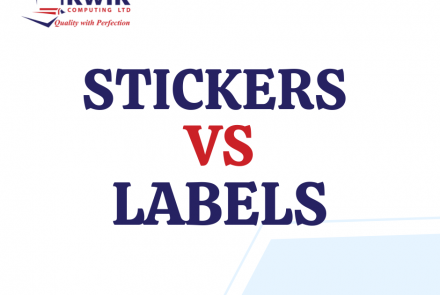Would you trust Facebook with your bank account?
Facebook is moving fast to allow users to send payments to each other. But will users bite?
The answer will be essential in determining the winner of one of the hottest races in the tech industry: payments. Alongside Facebook, startups like Xiaomi and Venmo race giants like Apple and Google for the chance to connect their networks with the wallets of their users.
In the context of its rivals, Facebook's new service is nothing unique. It will let users send money to Facebook friends through the Messenger app without any processing fee. It's familiar to those who have used PayPal, Venmo and other payments services that grease online commerce. Facebook's bet is that the Messenger app, with its comprehensive lists of friends and family, will make it appealing to users to send money.
The savviest part of Facebook's move may merely be the timing: it is launching the service at a moment of instability in the space, when the existing players are suffering hiccups and bigger tech companies like Apple and Google are muscling retailers for favors.
What's at stake isn't just tapping into bank accounts, but boosting the loyalty of millions of users.
"Payment is an activity most of us engage in on a daily basis; tech companies want to be in the middle of that to increase engagement and value," says Jordan McKee, a senior analyst covering mobile payments at 451 Research Mobility. The tech giants are aiming to create web ecosystems that are dominant — and as Apple's iTunes and Amazon proved, it's harder for people to walk away from a service that makes transactions easier.
Facebook has been plotting the move for many months. Mark Zuckerberg, Facebook's cofounder and CEO, talked up the potential of getting into peer-to-peer payments during an earnings call in July: "The payments piece will be a part of what will help drive the overall success and help people share with each other and interact with businesses. But we’re really focused on the interactions overall."
The social network is as well-positioned as any business to own a chunk of the payment market and perhaps stake a claim to payments more broadly, thanks to its billions: a vast user base of 1.39 billion monthly active users and a cash hoard of $11 billion. However, Facebook's mixed track record with payments and the struggles of its competitors show that its success in this space is anything but a foregone conclusion.
For years, Facebook has dabbled in accepting payments of one variety or another — virtual currency, paying for products through e-commerce — with spotty results. Last May, the company announced it was poaching PayPal's president to run its messaging products, a move that many took as a signal that Facebook would incorporate a payments option into the Messenger application. Top execs suggested it could take years; in reality it took a few months.
"Going back enough years, it wasn't necessarily clear what the revenue model would be for Facebook," says Brian Wieser, an analyst who tracks Facebook at Pivotal Research Group. In addition to pushing forward with advertising, Facebook explored a Groupon-style deals service and virtual credits for gaming and retail, both of which were ultimately killed off. Advertising turned out to be the stronger option. "[Payments] once was much more core to Facebook than it is now. It's hard to imagine it becoming core."
Facebook could eventually generate revenue directly from this effort by charging for the payments option or indirectly by getting more credit and debit cards on file, but analysts we spoke with believe the revenue is secondary for the Internet giant. Whether the goal is to generate revenue or simply establish a firmer grip on users, Facebook must now vie against businesses like Venmo and Square, which have been pushing free peer-to-peer payments solutions for years.
Venmo, in particular, is the app of choice for anyone born during or after Reagan's presidency, with a loyal user base. Its user growth has been helped in part by tapping into Facebook's social graph. But as the war between Twitter and video streaming service Meerkat demonstrates, the graph giveth and the graph taketh away.
The problem with payments is that they're rarely secure enough to prevent identity thieves from finding ways to steal the financial information of users. Apple Pay, which muscled into the market with the eager support of major retailers, has come under fire for its vulnerability to fraud. Venmo also recently suffered through a wave of critical press coverage questioning its security measures, or lack thereof.

To make matter more complicated, Venmo, a six-year-old service, had generated zero revenue as of this time last year, according to the CEO of eBay, its parent company. That may be harder to explain to investors when eBay and PayPal split into separate publicly traded companies in the second half of this year, putting PayPal on the hook.
Venmo declined to comment for this story. In a statement provided to Mashable, a PayPal rep stressed that it has had "a great relationship with Facebook since 2008," and works with the social network on payments for games and ads.
Square, on the other hand, has reportedly been burning through cash and is now hoping to be profitable this year. A rep for Square did not immediately respond to our request for comment.
The larger businesses entering the space may be able to eat the cost longer, but that doesn't guarantee widespread adoption. Amazon, for example, nixed its beta mobile wallet application after just six months and Google essentially had to make a big acquisition to reboot its stalled mobile payment efforts.
"Facebook Messenger has 500 million monthly users, trumping the existing footprint of other P2P payment networks by a significant factor. However, an existing user base does not necessarily dictate success," McKee says. Indeed, Facebook has yet to prove that its billion-plus users are interested and willing to store sensitive banking information, unlike with Apple and Amazon.
Just about the only thing you can say with certainty, according to McKee, is that "a shakeout in the mobile payments space should be expected."
- Log in to post comments






